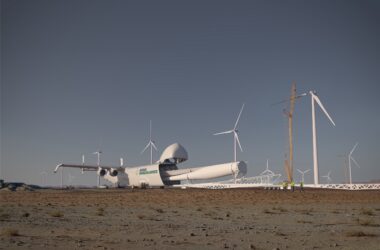The renewable energy landscape in the UK is witnessing a significant boost, with EDF Renewables taking the lead in enhancing the nation’s battery storage capacity.
As the world grapples with the pressing need for sustainable energy solutions, the role of battery storage serves as a linchpin, ensuring that energy generated from renewable sources is stored efficiently and is readily available to meet the demands of the grid.

Battery storage systems, especially those associated with renewable energy projects, are crucial in stabilising the grid. They help manage the intermittent nature of renewable sources like wind and solar, ensuring a consistent energy supply.
EDF Renewables’ recent move to add more than 400MWh of storage capacity to the UK grid underscores the growing importance and reliance on such systems. The company has now secured planning permission for lithium-ion battery facilities across three strategic locations in the UK.
These sites are poised to significantly augment the country’s storage capacity, ensuring a more resilient and efficient energy grid.
- Braintree, Essex: This facility, with a capacity of 57MW, will provide 114 megawatt hours (MWh) of storage.
- Swainsthorpe, Norwich: A more substantial facility, it boasts a capacity of 114MW and will contribute 228 MWh of storage to the grid.
- Near Sellindge, Kent: This 50MW facility will add 100 MWh of storage capacity.
These projects have been setup in part because of their strategic co-location with solar initiatives. All three battery storage sites are close to solar projects, which exemplifies the synergy between solar power generation and battery storage. Such co-location optimises land use and facilitates the efficient transfer of energy, minimising transmission losses and bolstering the grid’s reliability.
The UK’s commitment to a sustainable energy future is evident in its rapidly evolving battery storage landscape. As of the second quarter of 2023, Great Britain’s total battery energy storage capacity reached an impressive 2.9 GW. Forecasts suggest a further surge, with abilities expected to rise to 4GW by the end of the year.
This integrated system not only facilitates the inclusion of more renewables into the grid but also accelerates the decarbonisation of transport, making it a cornerstone of the UK’s green energy blueprint.
TL;DR:
- EDF Renewables secures planning permission for three lithium-ion battery facilities in the UK.
- The new sites will add over 400MWh storage capacity to the UK grid.
- All three battery storage sites are strategically co-located with solar projects.
- Simone Sullivan, head of Storage at EDF Renewables UK, highlights the importance of these facilities in creating a resilient electricity system.
- As of Q2 2023, Great Britain’s battery storage capacity stands at 2.9GW, expected to rise to 4GW by year-end.
- EDF Renewables UK’s Energy Superhub approach combines batteries with EV charging infrastructure, promoting more renewables and transport decarbonisation.








